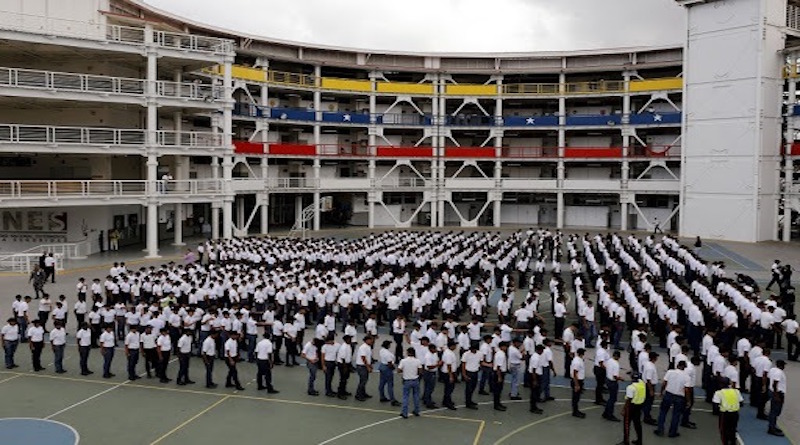UNES students expelled for protesting during elections

71 students from the National Experimental University of Security (UNES), Caracas, were expelled for their involvement in the protests inside the institution on July 28, the day of the presidential elections.
In a disciplinary council, students of the TSU in Criminalistics and Criminal Investigation were forced to sign their withdrawal from the institution for allegedly violating the rules of coexistence regarding morality and good customs inside or outside the university, according to information published by the newspaper Such and Such.
“If you are going to individualize the conduct of each of the students in these events, then tell me what illegal conduct each of them carried out. My son and the other five involved appear in a photo queuing at the voting center. They told me that this is an order from above. The order is to give him the discharge at 71 to scare him.“There is no other word for it, to scare the rest of the students,” complained the father of one of the expelled students, who as a lawyer filed a complaint in a civil court of cassation, although the judge told him that the administrative route and the resources for review and reconsideration should be exhausted in his case.
The lawyer’s son was called for an interview on August 21 and notified that he had an administrative process pending.
“They did everything backwards. When they notify that there is a procedure, they (UNES) are guided by the internal rules that give 48 hours to present any appeal, when the Organic Law of Administrative Procedures establishes in article 48 that it is 10 days,” explains the representative.
The student’s father said he tried to speak with Colonel Jaime Alcántara, a member of the UNES board, but it was not possible.
“He told me that he didn’t want to accept anything from me. I took all this to court, but they told me to exhaust all administrative procedures, but how are we going to exhaust these resources if they don’t accept us?” he explains.
Among those expelled are young people who had already completed their academic workload and paid the $90 tuition for the degree, as is the case of the lawyer’s son, who is 21 years old and was hoping to join the Scientific, Penal and Criminal Investigations Corps (CICPC) in October.
The young man’s father claims that his son’s fundamental rights were violated by not allowing him to defend himself against the accusations made by the board.
He explains that he was first summoned for an interview, where he was directly accused of being one of the students who recorded the protest on July 28 following the assaults on a classmate. Days later, he was informed that he had an administrative process open at the institution and had to appear.
“General José Rigoberto Betancourt Moya, secretary general of UNES, is guilty and responsible for everything that is happening, because he was voting assisted and attacked a colleague. That’s when the uproar started,” says the mother of one of those expelled.
His son was scheduled to finish his academic workload in December, but was called to testify. He was one of those arrested on election day and taken to the PNB headquarters in Maripérez. After two days, he was transferred to a Cicpc headquarters in Santa Paula. He remained there until Friday, August 2.
He was released from prison and remains under investigation, along with five other companions, for alleged incitement to hatred. Neither his cell phone nor any of his other belongings have been returned to them.
“These casualties have been planned for days. They say they are complying with the protocol, but they themselves are violating it because they will receive double punishment. They were already in prison for a crime for a week,” he says.
What happened to UNES students on July 28?
At noon on Sunday, July 28, citizens exercising their right to vote at UNES demonstrated against assisted voting, since they were being forced by the Plan República to accept it.
The crowd, which was inside the voting center, confronted the police officers to reject the attempt to violate the secrecy of the vote. The events were recorded in videos that were published on social networks.
The Voluntad Popular party, for its part, pointed out that center coordinators of the National Electoral Council They also required mandatory assisted voting.
Some students reported that they were threatened with not receiving their diplomas if they did not accept the guidance of the director of the training center, Major General José Rigoberto Betancourt Moya.
Independent journalism needs the support of its readers to continue and ensure that uncomfortable news that they don’t want you to read remains within your reach. Today, with your support, we will continue working hard for censorship-free journalism!
